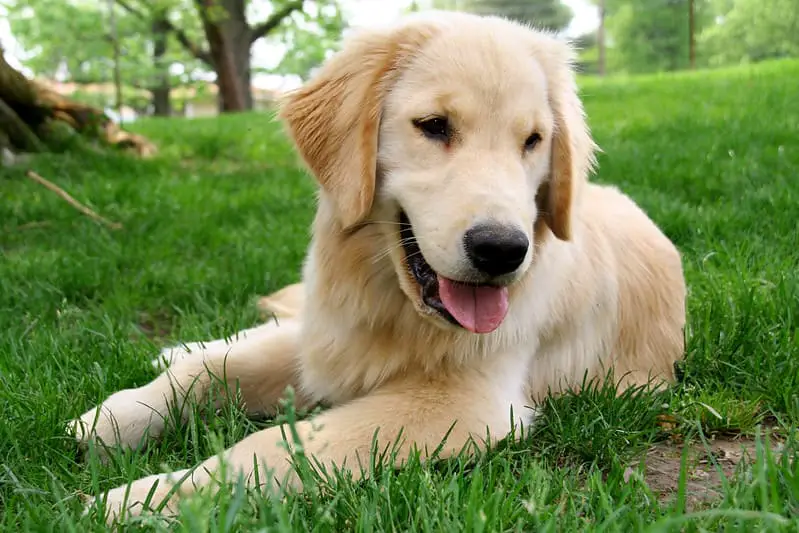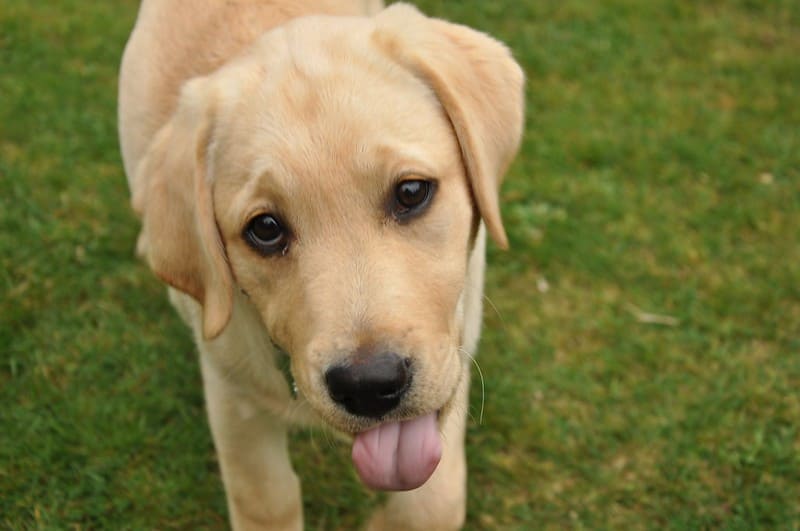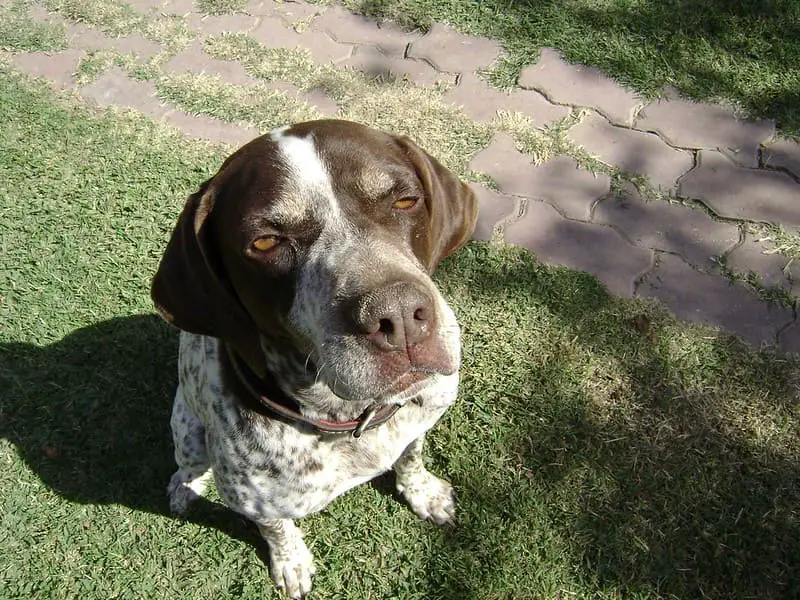If you’re a dog owner, you’ve likely witnessed your furry companion munching on grass at some point. It’s a common behavior that has puzzled pet owners for years. Why do dogs eat grass? Is it a sign of a problem, or is it just a quirky habit? In this comprehensive article, we will explore the various reasons why dogs eat grass, whether it’s okay to let them do so, and when you should consider consulting your veterinarian.

5 Reasons Why Dogs Eat Grass
Dogs exhibit a variety of behaviors, and eating grass is no exception. While it might seem strange at first, there are several reasons why dogs indulge in this behavior. Let’s delve into the five main reasons why dogs eat grass:
1. Grass Tastes Good
Dogs are naturally curious creatures, and they often explore the world through their senses, including taste. For some dogs, the taste and texture of grass can be appealing, leading them to munch on it out of curiosity or simply because they find it delicious. In some cases, dogs may develop a habit of regularly eating grass, even if there are no underlying health issues.
2. Your Dog is Bored
Like humans, dogs can experience boredom, and they may resort to eating grass as a means of entertainment. This is especially true for dogs who spend extended periods in the backyard with little stimulation or interaction. While occasional grass-eating due to boredom is usually not a serious concern, excessive consumption can lead to gastrointestinal distress and other health problems. It’s crucial to provide dogs with adequate exercise, playtime, and mental stimulation to prevent boredom and discourage excessive grass-eating behavior.
3. Your Dog Has an Upset Stomach
One of the most common reasons dogs eat grass is to soothe an upset stomach. If your dog is eating grass and experiencing symptoms like diarrhea or vomiting, it’s likely that their stomach issues are the cause. Dogs instinctively turn to grass for two reasons: it contains fiber, which can help soothe stomach problems, and it can lower the stomach’s pH level, providing relief from pain and symptoms.
4. Your Dog Needs More Fiber
Grass is rich in fiber, and many dogs consume it because they need additional fiber in their diet. Dogs with a poor diet may experience loose stools or constipation regularly. If you suspect that your dog is eating grass due to a lack of fiber, consider examining their diet and supplementing it with dog-safe fruits and vegetables. Some high-fiber options include blueberries, carrots, apples (without seeds), cantaloupe, and more. However, it’s essential to offer these foods in moderation, as excessive fiber can also upset a dog’s stomach.
5. Your Dog Has a Diet Deficiency
In some cases, dogs eat grass because they have a dietary deficiency, meaning they are not getting enough essential vitamins and minerals in their diet. This can occur due to a medical condition or a poor-quality dog food. If you suspect your dog may have a diet deficiency, consult with your veterinarian for guidance on improving their nutritional intake.

Why Did My Dog Eat Grass and Then Throw It Up?
Dogs sometimes eat grass, and this behavior can lead to vomiting, which can be concerning for pet owners. However, this behavior is not necessarily a sign of a severe problem. In most cases, dogs eat grass to make themselves vomit when they are not feeling well or to alleviate digestive discomfort.
When a dog eats grass, it can irritate their stomach lining, triggering the vomiting reflex. Vomiting helps clear the dog’s stomach of the grass and any other substances that might be causing discomfort or irritation. Nevertheless, consuming excessive amounts of grass can lead to digestive system blockages, which can also result in vomiting.
If your dog vomits after eating grass, it’s essential to closely monitor them and ensure they stay hydrated by drinking plenty of water. If vomiting persists or is accompanied by other symptoms like diarrhea, lethargy, or loss of appetite, it’s advisable to consult a veterinarian to rule out any underlying health issues. In some cases, vomiting could be a sign of a more serious condition, such as gastroenteritis or pancreatitis, requiring medical treatment.
Is it OK to Let Your Dog Eat Grass?
In general, it is okay to allow your dog to eat grass occasionally. However, it’s crucial to limit this behavior to your property, where you can be certain that the grass is free from potentially toxic chemicals like pesticides and herbicides. It’s also important not to let your dog consume large quantities of grass at once, as excessive ingestion can lead to stomach upset.
Should You Take Your Dog to the Vet for Eating Grass?
While eating grass is a relatively common and often harmless behavior in dogs, there are instances when consulting a veterinarian is a good idea. You should consider talking to your vet about your dog’s grass-eating habits if:
- You suspect that there is something wrong with your dog’s diet, such as a lack of fiber, vitamins, or minerals.
- Your dog is vomiting or experiencing diarrhea.
- Your dog exhibits other signs of illness.
- Your dog shows signs of having a medical condition.
- Your dog has consumed a significant amount of grass at one time.
- You suspect your dog has eaten grass treated with toxic substances like pesticides or herbicides.

FAQs: Why Do Dogs Eat Grass?
Is it normal for dogs to eat grass?
Yes, it’s relatively normal for dogs to eat grass on occasion. In fact, many dogs do it without any adverse effects. However, if your dog is consuming large quantities of grass frequently, it may be a sign of an underlying issue and should be monitored.
Can eating grass be harmful to my dog?
Eating grass isn’t necessarily harmful, but there are some risks. The grass itself isn’t toxic, but it can be contaminated with pesticides or herbicides. If your dog ingests these chemicals, it could be harmful. Additionally, excessive grass eating may lead to vomiting, which can temporarily upset your dog’s stomach.
Does eating grass indicate a dietary deficiency?
Some experts believe that dogs may eat grass to fulfill a dietary need, such as adding fiber to their diet. However, this theory isn’t universally accepted. If you suspect a dietary deficiency, consult your veterinarian to adjust your dog’s food accordingly.
Can I prevent my dog from eating grass?
It’s challenging to prevent your dog from eating grass entirely, especially if they do it occasionally. However, you can reduce the risk by ensuring they have a well-balanced diet and keeping your yard free from harmful chemicals.
When should I be concerned about my dog eating grass?
If your dog suddenly starts eating a lot of grass, vomits frequently, shows signs of distress, or the behavior is a new and unusual change, it’s best to consult your veterinarian. These could be signs of an underlying issue that requires attention.

Are there safe alternatives to grass for dogs to chew on?
Yes, you can provide safe alternatives for your dog to chew on, such as dog-safe chew toys and treats. These can help satisfy their chewing instincts without the potential risks associated with eating grass.
Can certain breeds be more prone to eating grass?
There is no clear breed-specific tendency for grass consumption. It varies from dog to dog and is influenced by individual factors like age, temperament, and environment.
How can I discourage my dog from eating grass if it becomes a problem?
If grass consumption becomes problematic or frequent, consult your vet to rule out any underlying medical issues. They can provide guidance on behavior modification and offer solutions to discourage this behavior if necessary.
Should I be concerned if my dog doesn’t eat grass at all?
Not necessarily. Not all dogs eat grass, and it’s not a requirement for their diet. If your dog doesn’t show any interest in eating grass, it’s not a cause for concern as long as their overall health and behavior are normal.
Conclusion
In conclusion, dogs may eat grass for various reasons, including as a response to boredom, a way to soothe an upset stomach, or simply because they enjoy the taste and texture. While eating grass is generally not harmful, it can lead to vomiting and other digestive issues in some dogs. Pet owners should monitor their dogs’ grass intake and be vigilant for any unusual behaviors or symptoms that may indicate underlying health problems. If you have concerns about your dog’s grass consumption, consult your veterinarian for guidance and appropriate measures.
